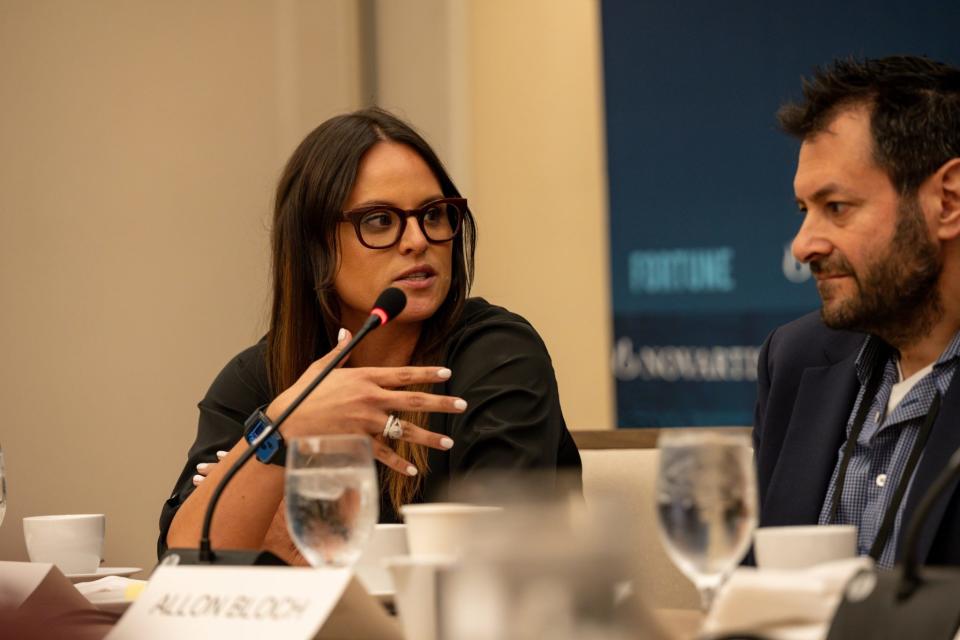Don’t expect health care to fix itself: It will take consumers wielding their money to ‘shift the big Titanic’ of the system, health exec says

In the health care world, one thing is clear: “We are increasingly moving from patient to consumer, and consumers hold a tremendous amount of power,” Liana Douillet Guzmán, chief executive of FOLX Health said at Fortune’s Brainstorm Health conference in Dana Point, Calif., on Tuesday.
FOLX Health, a health care provider for the LGBTQIA+ community, built its brand and business knowing there was an army of passionate consumers, Douillet Guzmán said. Those consumers, who were underserved by the existing health-care options, went to their employers asking that their insurance provide coverage, she said. “We were able to negotiate,” she said, “because there was an understanding that what we offered was differentiated and important and should be paid in that way.”
So when it comes to access, a troubling topic within the system, consumer demand will “force the big Titanic to figure out how to shift,” Douillet Guzmán said.
Allon Bloch, cofounder and CEO of K Health, mentioned GLP-1s, the miracle weight-loss drugs that have taken the world by storm. Those medications are something people say they want and need—although sometimes for the wrong reasons, he said. Companies are clearly responding to that demand. Just yesterday, direct-to-consumer company Hims & Hers, which made its name offering Viagra by mail order, announced it would offer Wegovy and Ozempic at a steep discount.
Still, access remains a major issue plaguing the health care system. Health care is often dependent on where a person lives, Douillet Guzmán said. But technology can change that, panelists said, whether it be through virtual appointments and remote care; data to better outcomes, or machines that can potentially do better than some human professionals.
Not to mention that, “in the healthcare setting… 80 to 90% of the work that impacts the patient's health happens outside of the four walls of the doctor's office,” said Binta Beard, head of social impact and president at Novartis U.S. Foundation. “We recognize that… and aim to really focus on social determinants that will help our patients.”
Cost is another issue, one that Bloch suggests could be improved by AI. “A lot of our money is pilfered just by manual repetitive work,” he said, calling it a waste. In his view, primary care isn’t great and is too expensive, making it a prime area where machines can do a dramatically better job.AI, despite all the fears surrounding it, could be an equalizer—for instance, by offering translation services or engaging with people differently depending on their genders.
Here’s the thing, even if innovation exists, we might not have the systems in place to implement it into the medical system, Beard said. But patients becoming consumers of health care, as Douillet Guzmán said, might change that because they’ll demand it. And in 10 years, there might be a whole set of tools that can diagnose and treat those consumers at home.
This story was originally featured on Fortune.com

 Yahoo Finance
Yahoo Finance 